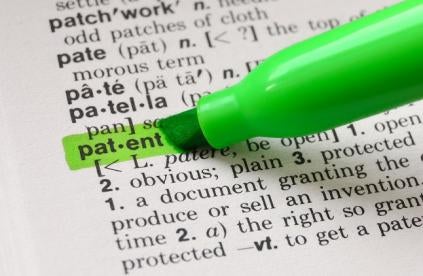In Neumodx Molecular, Inc. v. Handy Lab, Inc., IPR2020-01133, Paper 23 (Aug. 6, 2021), the Board granted Petitioner’s request for rehearing, overturning its previous decision to deny institution.
In denying institution, the Board found the petitioner failed to establish that the prior art necessarily incorporated a provisional application for anticipation purposes. Because this finding was enough to preclude institution, the Board did not address whether the petitioner established a reasonable likelihood of prevailing in the proceeding.
On rehearing, the Board addressed three primary issues: (1) whether the Board misapprehended the law regarding incorporation by reference; (2) whether discretionary denial was proper under 35 U.S.C. § 314(a); and (3) whether discretionary denial was proper under 35 U.S.C. § 325(d).
Regarding the first issue, the Board reasoned that the law does not require an incorporation by reference be so specific as to identify the precise passage being incorporated or the precise embodiment to which the incorporation relates. Instead, the Board found, it is sufficient to identify the reference and indicate that it is being incorporated in its entirety. Such incorporation, while “broad,” is “unambiguous” and “plainly sufficient.” Because petitioner’s proposed prior art identified several provisional applications, all of which were “incorporated by reference,” the Board agreed that its original institution decision misapprehended the law, and that the provisional application was part of the prior art publication for anticipation purposes. The Board then found that petitioner established, based on the provisional application, a reasonable likelihood of prevailing on its anticipation argument.
Turning to 314(a), the Board reasoned that the balance of the issues weighed against discretionary denial based on the Fintiv factors.[1]Because the petitioner presented the same art in its challenge before the Board and the district court, Fintiv factor 4 (overlap of issues) weighed in favor of denial. However, the remaining factors weighed either neutrally or in favor of institution. Importantly, the Board noted that the parties filed a joint request to extend the case’s parallel district court litigation schedule. Under the new schedule, the Board’s final written decision would issue four months before trial. Accordingly, the Board found that Fintiv factors 2 (proximity of trial date) and 5 (whether petitioner and defendant are the same party in the parallel proceeding) favored institution. The Board also noted that the extended trial schedule delayed the deadlines for final invalidity contentions and fact discovery, and thus determined that Fintiv Factor 3 (investment in parallel proceedings) also weighed against discretionary denial. In sum, the Board found that the Fintiv factors weighed against discretionary denial.
Finally, the Board determined that institution was proper under 325(d), despite certain grounds being cumulative of arguments presented during prosecution. In particular, the Board reasoned that arguments based on the provisional application that was incorporated by reference were not discussed during examination. Thus, the grounds did not completely overlap with, and were not entirely cumulative, of previously presented arguments.
[1]The six Fintiv factors were laid out in Apple Inc. v. Fintiv Inc., IPR2020-00019, Paper 15 (May 13, 2020) (informative). More information about these factors can be found at https://www.finnegan.com/en/insights/blogs/at-the-ptab-blog/ptab-designates-decision-on-discretionary-denial-as-precedential.html.



 i
i


